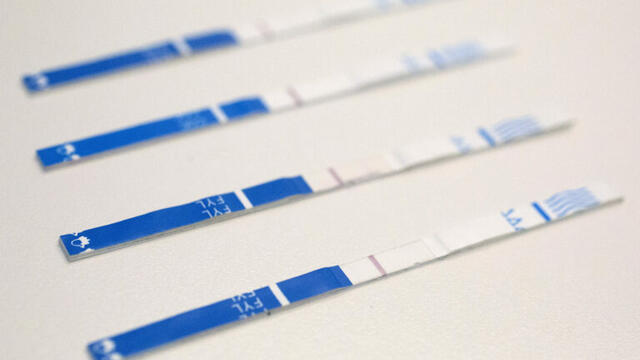Substance Use: Harm Reduction
Wisconsin Substance Use Summit: August 5-6, 2026
Interested in building healthy communities through substance use prevention, treatment, and recovery services and supports? Join us in Green Bay or virtually for this first-of-its-kind learning and networking event. Visit the Wisconsin Substance Use Summit page to learn more.
Improving outcomes for people who use drugs in Wisconsin
There is an overdose emergency in the United States with more than 100,000 people dying due to an overdose each year. Fentanyl and other adulterants have led to rising overdose rates. Most overdose deaths involve opioids, but deaths involving other types of substances are increasing.
In Wisconsin, overdose deaths have more than doubled in the last 10 years, with Black and Indigenous communities being most impacted. Every life lost to an overdose is preventable.
Harm reduction is an evidence-based public health approach to prevent overdoses and the spread of infectious diseases, like HIV and hepatitis C. Harm reduction focuses on empowering people to make safer choices to prevent negative health outcomes. People practice harm reduction every day to keep themselves safe. Wearing seatbelts and helmets, driving the speed limit, and exercising are everyday examples of harm reduction.
Harm reduction does not enable drug use. It is an evidence-based practice that saves lives. Harm reduction does not minimize or dismiss the very real risks of drug use. Harm reduction also does not condone, endorse, or encourage drug use or high-risk behaviors.
A set of key principles guide harm reduction approaches.
What do harm reduction programs look like?
Harm reduction programs make drug use less risky, connect people to resources, and improve health outcomes. Harm reduction programs include a range of services:
Overdose education and naloxone distribution
Naloxone is a medication that can reverse an overdose caused by an opioid drug like fentanyl, heroin, or prescription pain medications. Naloxone is widely available in Wisconsin.
Drug checking technology
Fentanyl and xylazines test strips indicate when either substance is present in a drug supply, allowing people who use drugs to make better-informed decisions and use more safely.
Harm reduction mobile units
Wisconsin's Harm Reduction Response Team (HRRT) seeks to enhance and expand harm reduction services in Wisconsin to reduce injection-related infections and opioid-related deaths.
Harm Reduction Technical Assistance Centers (HRTACs)
HRTACs provide support to newly formed harm reduction organizations who connect people who use drugs (PWUD) with harm reduction resources.
Syringe service programs (SSPs)
SSPs use a harm reduction approach to reduce the risks associated with drug use. People who access SSPs are more likely to enter treatment for injection drug use than those who do not.
Substance use statistics
DHS collects and analyzes data to identify where communities are struggling, help tailor our response, and show improvements in health and wellness.
Benefits of harm reduction programs
Harm reduction programs keep communities safe by providing life-saving resources and education to prevent overdose and the spread of infectious diseases. Harm reduction programs often distribute naloxone, a medicine that reverses overdoses, and safer use supplies to keep people who use drugs alive.
People accessing harm reduction programs receive referrals to mental health services, substance use disorder treatment, and medical care. In fact, people who access harm reduction programs are five times more likely to enter treatment for substance use disorder. Harm reduction programs also help prevent the spread of infectious diseases by offering testing and treatment services. Harm reduction programs often work with law enforcement to provide them with tools to safely respond to calls involving substance use.
Additional resources
Learn more about keeping communities healthy through harm reduction: Harm Reduction: Keeping Communities Healthy, P-03512 (PDF)
Training
Safety First: Comprehensive, Harm-Reduction Based, Drug Intervention Curriculum for high school students







